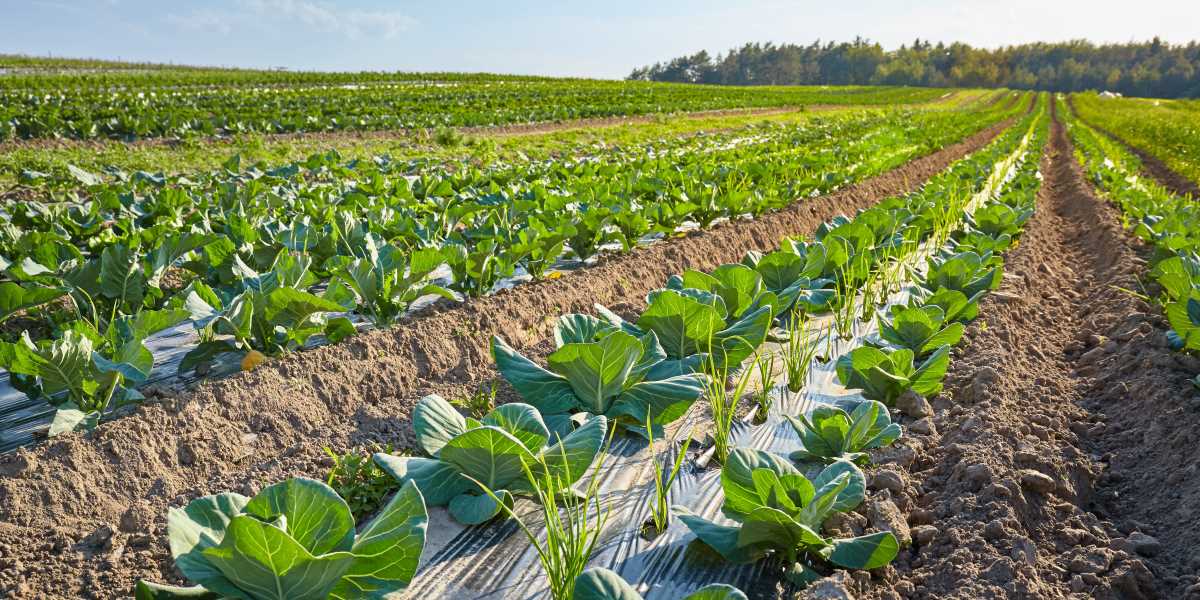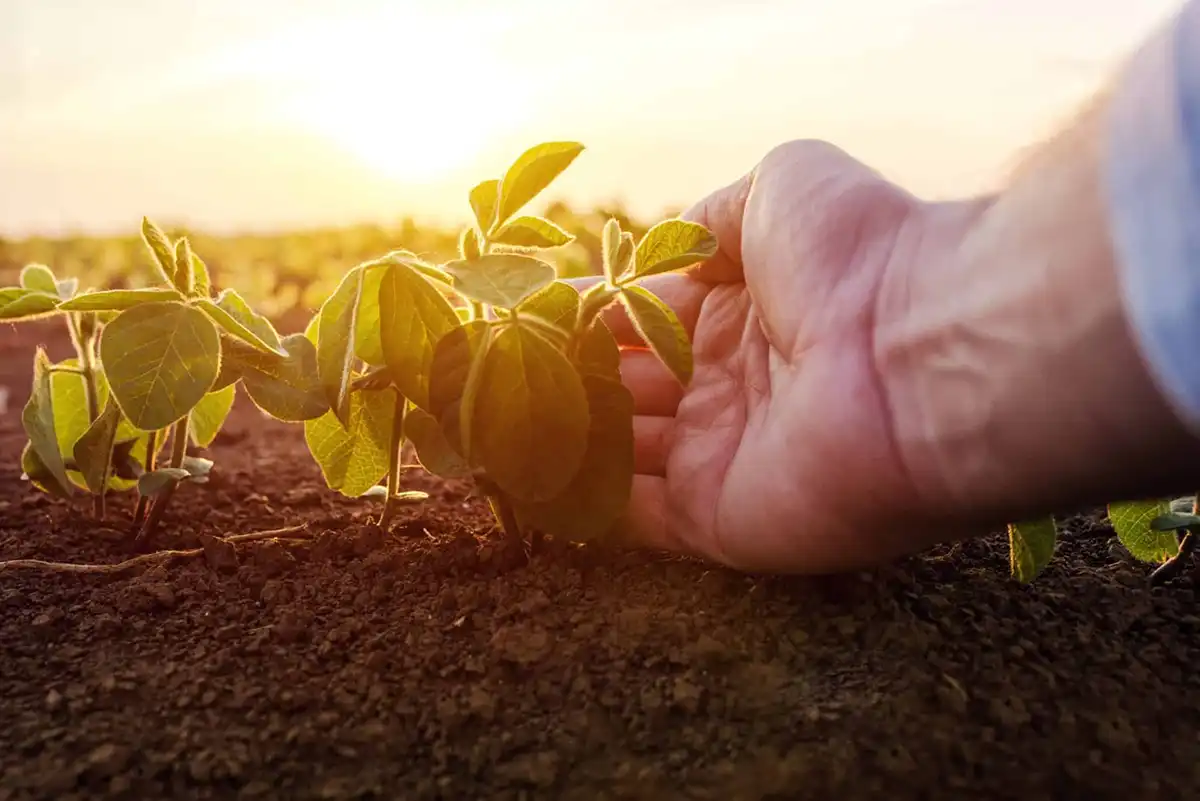Lehigh University researchers are developing biodegradable mulch films that deliver nutrients to crops, offering an eco-friendly alternative to traditional plastics in agriculture.
Invasive weeds are not only a nuisance in home gardens but also impose a significant financial burden on the agriculture industry, costing an estimated $33 billion annually. These plants compete with crops for essential resources like water, nutrients, light and space.
Mulch films are a common tool in agriculture, helping suppress weeds, retain soil moisture, and regulate soil temperature to boost crop yields. However, traditional plastic mulch films present environmental concerns, as they do not decompose and contribute to plastic pollution.
Jonas Baltrusaitis, an associate professor in the Department of Chemical and Biomolecular Engineering at Lehigh University, is addressing this issue through his development of sustainable nutrient-delivery materials. His research focuses on creating composite nutrient-containing degradable polymers for mulch films, aiming to replace conventional plastic with eco-friendly alternatives. Lehigh detailed the work in a recent news release.
Baltrusaitis’ work has gained significant support from the United States Department of Agriculture (USDA) and its National Institute of Food and Agriculture. The USDA recently awarded him a $744,000 research grant for a project titled “PARTNERSHIP: Engineering Nutrient-Enhanced Mulch Film to Improve Degradation and Soil Health.” This multi-year initiative, running from July 2024, through June 2028, brings together experts from the University of Massachusetts Lowell, USDA Agricultural Research Service in Maricopa, Arizona and Ben Gurion University in Israel.
The research team is working on incorporating biodegradable polymers with nutrients that benefit crops while breaking down naturally in the soil. By using a multidisciplinary approach, Baltrusaitis and his colleagues are designing nitrogen-efficient materials like urea cocrystals to enhance the films’ functionality.
Margaret Sobkowicz-Kline, a professor in the Plastics Engineering Department at UMass Lowell, plays a critical role in the project by applying her expertise in biopolymers derived from renewable resources, such as polylactic acid (PLA) and polyhydroxyalkanoates (PHA). Her team will combine these bioplastics with urea cocrystals to create mulch films for testing in both laboratory settings and real agricultural environments.
“Our work with urea cocrystals that provide a convenient vehicle of nutrient delivery into degradable polymers aims to develop sustainable solutions for agricultural practices,” Baltrusaitis explained in the release. “Traditional plastic mulch films have a detrimental impact on the environment. By developing biodegradable alternatives, we can help reduce plastic pollution, improve soil health, and promote sustainable farming practices.”
One of the challenges the team faces is ensuring the mulch films maintain their effectiveness throughout the growing season while biodegrading efficiently afterward. The team is exploring different formulations and processing techniques to strike a balance between durability and biodegradability, with extensive testing under various soil and climate conditions.
“We are constantly refining our formulations to strike the right balance between durability and biodegradability,” Baltrusaitis said. “It’s crucial that the films remain effective throughout the crop cycle and then degrade without leaving harmful residues. This requires a deep understanding of both material science and agricultural needs.”
Cost is another important factor in the development of biodegradable mulch films. Traditional plastic films are inexpensive, so making biodegradable options cost-effective is key for widespread adoption. Baltrusaitis’ team is optimizing production processes and using sustainable raw materials to create competitive alternatives for farmers.
“Sustainability in agriculture is not just about protecting the environment; it’s also about ensuring economic viability for farmers,” Baltrusaitis noted. “Our goal is to develop solutions that are affordable and practical, so farmers can adopt them without compromising their livelihoods.”
Baltrusaitis’ research has drawn interest from environmental groups, agricultural communities, and policymakers. As sustainability in agriculture becomes a growing concern globally, his work on nutrient-containing biodegradable mulch films aligns with efforts to reduce plastic pollution and promote sustainable farming practices.
Looking forward, Baltrusaitis remains optimistic about the potential impact of his research. “We are making significant strides in developing nutrient-containing biodegradable mulch films that can transform agricultural practices,” he said. “The ultimate success of our work lies in its adoption by farmers and its contribution to a more sustainable agricultural system. I am excited about the future and the positive changes we can bring about to create a more sustainable and resilient future.”











